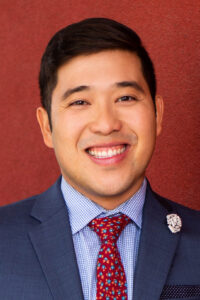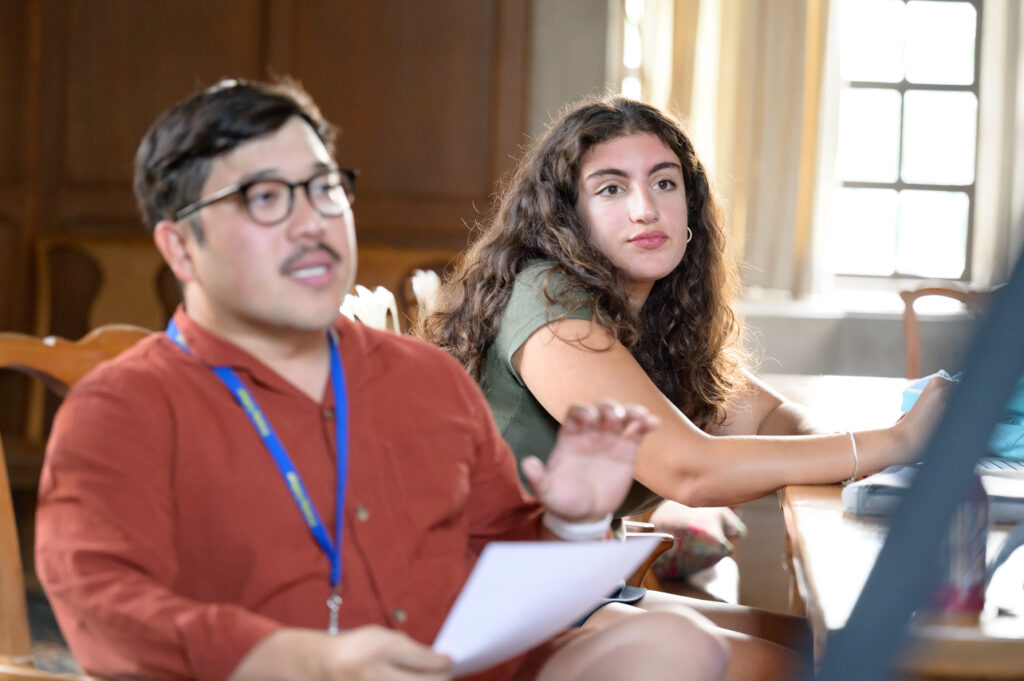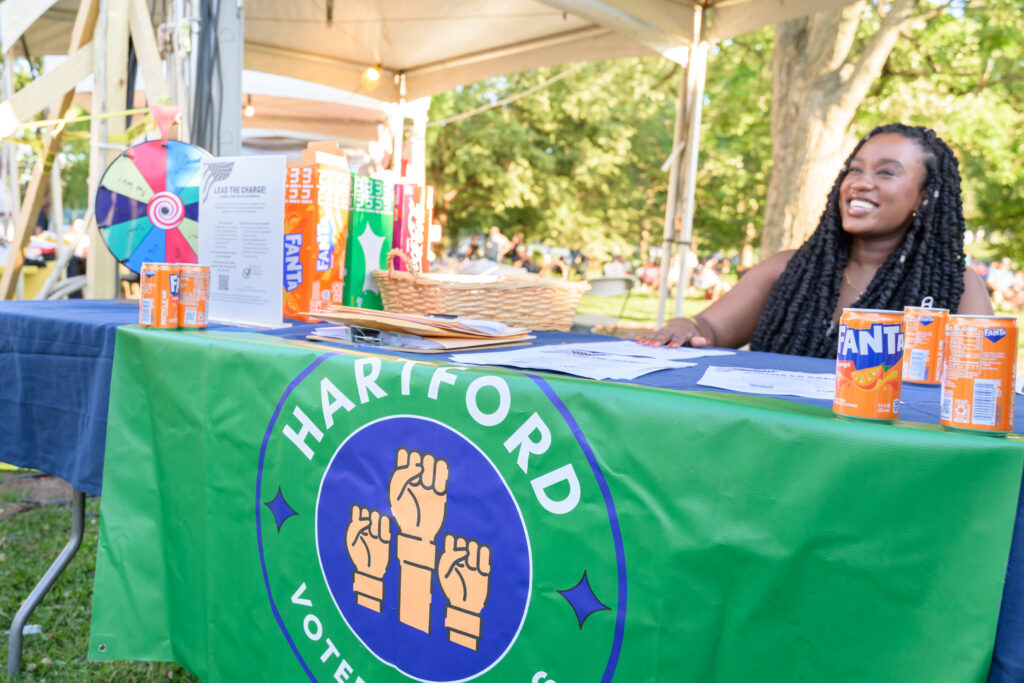Trinity Professor Receives Award for Civic Engagement and Grants for Research
Assistant Professor of Political Science Dang Do has received the 2025 Outstanding Civic Engagement Project award from the American Political Science Association in recognition of the success of the Voter Captain Project, which aims to increase voter turnout in Hartford’s underrepresented neighborhoods.

In 2024, Do and Abigail Fisher Williamson, associate professor of political science and public policy and law, launched the Voter Captain Project with support from the Hartford Foundation for Public Giving and Trinity’s Summer Research Program. During that summer, Trinity student research assistants recruited prospective voter captains at libraries, block parties, and the Greater Hartford Festival of Jazz.
Do explained that each voter captain assembled a list of 20 people they wanted to encourage to vote in the upcoming November election. Then, students in Do’s “Racial Politics Research Methods” class worked with the captains to finalize their contact lists. Using skills learned in the class, students asked voter captains to approach half of the contacts they listed.
The results of the project, Do said, showed that prospective voters who were contacted by captains showed about a 2-percent increase in participation rates over those who weren’t. While he was pleased with the modest increase in participation rates, Do said, “What was more surprising to me, and more interesting, is that when we interviewed voter captains about their experience, a lot of them expressed an increased sense of efficacy. We realized we weren’t just training voter captains for one election, but we were also seeding the community with people who are motivated about their civic duty. We’re hoping that continues to spread over time.”

This year, Do received another grant from the Hartford Foundation for Public Giving to recruit and train voter captains for the upcoming Hartford Board of Education elections on November 4, 2025. “School board elections usually have low turnouts. It’s going to be a hard case for us to make, but I’m excited to see how our model works,” Do said. “We’ve got about 50 voter captains signed up already.”
Do reflected on his experience as an Asian-American immigrant as a significant influence on his interest in political science and minority representation. “My family and I emigrated from Vietnam when I was 5. Because my parents didn’t speak much English, my siblings and I became the voice for our family,” Do said. “When I went to college and began studying political science, I became interested in how other underrepresented people, with the same kind of struggles as me, express their voice politically.”
Do now hopes to inject a sense of optimism in his students when they are thinking about concepts like minority representation, group lobbying, and democracy. “Sometimes when I teach political science, it can seem to be all doom and gloom and selfishness on display. But the data tells us that if you are from a marginalized group, there are instances where you can make a difference. As long as you build large and diverse coalitions, you can effect change through voting, protesting, narrative storytelling, and lobbying,” Do said. “Lobbying isn’t just for big corporations trying to get a tax break. I want to offer another vision and lay out an optimistic blueprint for those who want to get involved in political advocacy.”

Do, who directs the Legislative Internship Program at Trinity, also has been awarded grants from both the Institute of Humane Studies (IHS) at George Mason University and the Hartford Foundation for Public Giving to support his research on American politics.
The IHS grant will allow Do to extend his early career research leave and dedicate the full 2025-26 academic year to finishing his book project, Voices of Color: The State-Level Dynamics of Racial Minority Interest Group Lobbying. The Civic and Resident Engagement grant from the Hartford Foundation for Public Giving will support a second year of funding for Do’s Voter Captain Project.
“My book project explores how racial minority interest groups compete in lobbying in the United States,” Do said. “I found a huge unexplored data set at the state level in California, where I can see the support and opposition for interest groups on bills from 1997 to 2018.”
Read more about the Voter Captain Project here.
